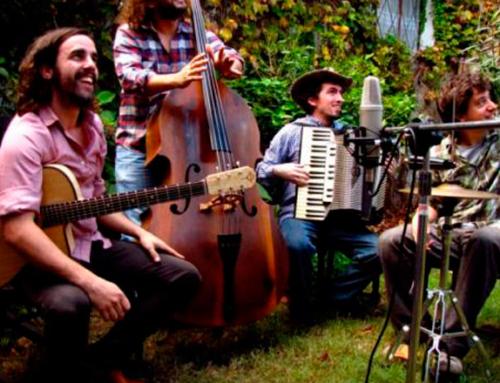For most Argentines, it is a resting place for a few days, but for others Punta del Este has become a place to live. Some families have arrived long ago, others are spending their first years and some will not return to life in Buenos Aires any more.
As the government has set out to design policies to encourage Mercosur citizens to obtain their residence in Uruguay smoothly and quickly , a growing number of Argentine families decide to cross the river and change their life forever. The increase in school enrollment of Argentine children in Punta del Este‘s most distinguished schools is a clear sign of this.
A more peaceful life, without uncertainties, and finding a better life quality for their children, are the reasons stated by those who arrive to the resort from abroad to stay all year. […] Education is not left to chance, thus parents are increasingly relying on the schools of the peninsula.
Argentine Uruguayan Institute (IUA, Instituto Uruguayo Argentino), St. Clare’s College, Woodside and Joseph Mary offer bilingual education and have dozens of foreign students. The increase in Argentine student enrollment started two years ago.
«When we started the school 10 years ago, we had 20% of Argentine students. Today we have 40% or so. It has been increasing consistently and in recent years it has been very strong, » said St. Clare’s College principal, Daniel Reta, to El Observador. The institution, located in San Rafael neighborhood, has 300 students. About 120 come from families that crossed the River Plate, another 100 are Uruguayans and the rest are Brazilians, Americans and Europeans.
Another traditional school is the IUA, which is located in the area of Parada 6 on the Mansa beach. Since it was founded in 1978 as a kindergarten, it has a high number of Argentine students. The school told El Observador that they will be open for enrollments on February 1, but in the last days they have been receiving phone calls from parents interested in having an interview to learn about their proposal and enroll their children in preschool, primary or secondary school.
In the case of St. Clare’s College, there is a predicted continuing increase in the number of students. This year there are already 60 new students confirmed, of which 45 are Argentines who enrolled last July to start their courses in March. As he explained, offering the International Baccalaureate, which is recognized in many parts of the world, attracts foreigners. «Parents are seeking this accreditation for their children. There are courses taught in several countries with the same contents and in the same period. This offers mobility to the student, without the need to sit for any examination in case they move elsewhere,» he said.
Meanwhile, Colegio Cantegril reported that two families with preschool and primary school age children emailed the school explaining that they plan to settle in the area and want to have an interview with the principal. In all cases, enquiries are expected to be more frequent from next month, as we approach the beginning of the school year.
Rita Crosato, a member of the group Argentine Women Living in Punta del Este (MAR), told El Observador that between 4,000 and 5,000 of her compatriots live in the surrounding areas. However, she explained that it is a fluctuating population, because many of the families with high school age children return to Buenos Aires when they graduate so they can begin higher education.
During the last Uruguayan Cabinet meeting held at the presidential residence of Suarez and Reyes, President Jose Mujica asked members of his cabinet to coordinate policies to expedite the processing of residence and nationality for citizens of the region wanting to settle in the country . To that end, a working group integrated by the ministries of the Interior, Foreign Affairs, Social Development and the Secretary of the Presidency will be formed.
Since beginning his term in office, Mujica has shown especial interest in young people with a high working capacity and qualifications settling in the country to meet the growing demand for skilled labor. According to the Minister of Foreign Affairs Luis Almagro, the goal is to stimulate the residence of, not only retired elderly people with high purchasing power, but also young people with working capacity.


